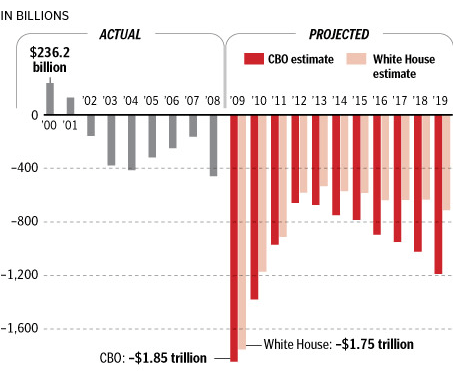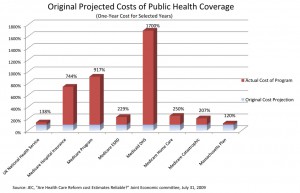My father is a fan of Rush Limbaugh.
Also Sean Hannity, now that he's come on the scene.
And Hugh Hewitt, actually, and also Michael Medved. Come to think of it, Dennis Prager too, and...
Well.
You understand. Perhaps your heart is even going out to me. You are thinking of what my childhood must have been like.
Actually it wasn't bad at all - I'm certainly not about to form a support group - but it's true that by the tender age of 15 I had taken upon myself a daily reading list that included practically every major Republican name with a national opinion column - and I found them all conveniently collected for my daily perusal at Townhall.com, still so far as I know the preeminent clearinghouse on the internet for conservative messages (not that I am looking). Daily columns, cartoons, podcasts, pictures of Ann Coulter back when she was attractive, FOX stuff... It's all there.
Here's the thing: when I eventually went cold turkey on the extremely addictive website, it wasn't because I'd jumped over to the Libertarian position. I didn't do that until years later. No, I quit reading Townhall.com's columnists out of boredom.
I tried to explain this to my dad a couple months back, said: "Listen, maybe it's just that I have a Bachelor's in the English language, for which you paid by the way and I am grateful, or maybe it's that the similarities between all of those articles become more apparent to you when you read as many of them as I did on a daily basis. But they're all the same, Dad. There's little difference in style, still less in formula, and either one of us could very likely guess the opinion of any one of them on any given issue at any time. Really, it's hack work, stuff they pretty obviously churn out when they're not busy doing the real jobs that made their names. If they're not ghost-written they should be, because I could write them easy."
"I don't think you could do what they do," replied my father. No doubt he simply thought his son's ego was once again getting ahead of his actual abilities, which admittedly has been known to occur.
But y'know what? I can write them easy. And just as a writing exercise today before I get started on what I high-falutin'ly refer to as my "serious work", I churned out the following column in about an hour and a half. I plan to "forward" it to my father this week with a pseudonymous byline (at the moment I'm thinking "Christofer Fuller", being my first and last name in their respective German pronunciations, but that may be too obvious).
If you've read conservative columnists of the sort that fill Townhall.com then you know whether or not I successfully capture the right formula. I think it needs slight polishing but it otherwise feels authentic.
How Democrats Can Fix Our Health System
By Christofer Fuller
There’s a fairly easy way to tell whether someone’s offer to help you is truly altruistic or has ulterior motivations: just reject the offer and see if the wannabe do-gooder accepts your answer. For instance, if you’re a woman carrying groceries to your home and a man resolutely demands that he bring them inside for you, it’s time to shout for help.
The Democrats’ recent refusal to listen to the millions of Americans who have made it abundantly clear they want nothing to do with government-mandated health care clearly fails this test. President Obama, Sen. Harry Reid, and Rep. Nancy Pelosi aren’t just determined to present every American with the choice of purchasing health insurance; all of them want to fine you if you make the wrong decision, to the tune o’ $950 if you’re just you and up to $3,800 if you’ve got the the wife and kids. I ask you: what could be the rationale behind making this threat? If the Democratic Party can successfully lead all the horses of America to water, why force the ones that aren’t thirsty to drink?
And for that matter, why insist on American tax dollars funding this expensive program – especially with the national debt as high as it already is – when the Democratic Party itself already has the power to fix our whole system?
All the Democratic Party has to do is enter the health insurance market.
I'm serious. Look: According to our would-be rescuers, the problem is that greedy health insurers are jipping us, right? And also not accepting those of us with preexisting conditions, the jackals! Well then, let the Democratic Party establish its own non-profit insurer – let’s call it the Democratic Health Co., or D.H.C. - devoted to taking on anybody and everybody wanting coverage at rock-bottom rates.
This should be easy. After all, the Party already has a list of 72 million customers (their registered voters) who want the product, right? Most companies would shed blood for a database like that. One e-mail to everybody on the list and D.H.C. could rival BlueCross BlueShield right out of the starting gate.
As for getting the money to start this ball rolling? Are you kidding? This is the same organization that raised nearly a billion dollars for the last election. For a noble undertaking such as this they could probably raise more.
It would be great to see the D.H.C. really show all of our current money-grubbing insurance providers what it really means to care for others – and best of all, its entry into the market would force those sons of guns to compete by making the same offers! So everybody would end up with affordable health insurance, without having a plan pushed on them they don’t want! Wouldn’t that be great?
If the Democrats only cared enough about me to make a no-strings offer like that, shoot – I’d put ‘em into every local, state, and federal office for which I have a vote.
But they don’t, do they? If I say no, they threaten me.
HELP!
UPDATE: Oh, why not? I just submitted it to a couple of different conservative opinion editors. Total shot in the dark, I know (and if one of them wanted it, I'd have to take down this post in a hurry), but why waste ninety whole minutes of work?
UPDATE 2: My wife agreed that "Fuller" was too obvious, so I chose "Paulson" as my nom de guerre (my father's name is Paul). As the saying goes, "Let's see if he can taste the difference!"
UPDATE 3: Nope, he couldn't.





